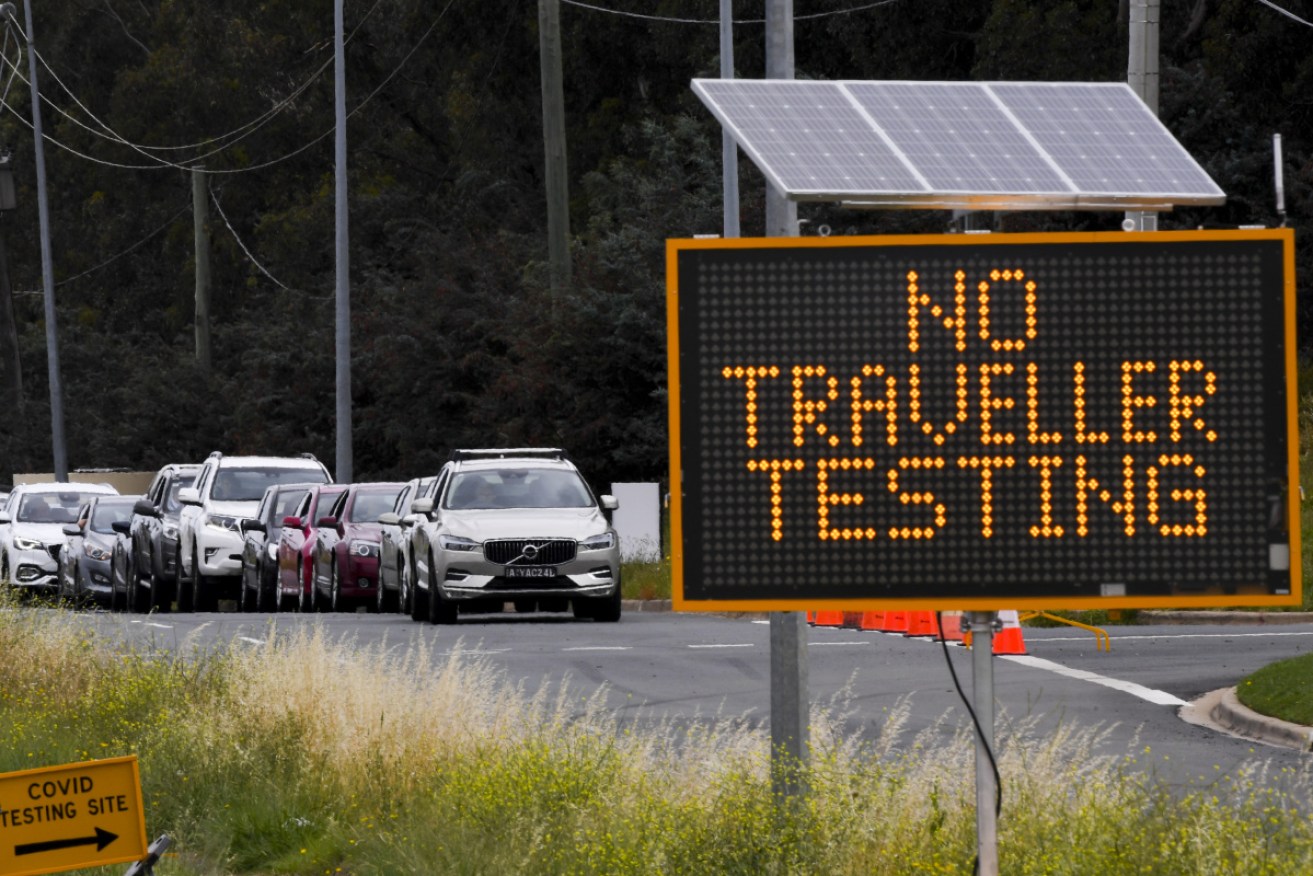ACT overhauls COVID-19 contact rules

A self-reporting system for RATs has been introduced as the ACT records 1078 new COVID-19 cases. Photo: AAP
The ACT will overhaul its COVID-19 contact definition and isolation requirements, and set up a second mass vaccination hub, as it battles soaring case numbers.
There were 810 new cases reported on Wednesday, a slight decrease from the record 926 infections the day before.
Hospitalisations increased to 16, with one patient in intensive care and on ventilation.
Chief Health Officer Kerryn Coleman announced changes to the ACT’s test, trace, isolate and quarantine regime as Omicron infections surge.
Contacts will now be reclassified as either high, medium or low risk.
Positive cases will still need to undergo seven days of quarantine, with household contacts also requiring a PCR test.
Positive cases will also need to notify household contacts and people they have seen socially within the two days prior to becoming symptomatic or testing positive.
High-risk contacts — those who have spent a considerable amount of time at home with a positive case — will still need to undergo quarantine.
A contact who has been with a positive case at a place such as a restaurant or bar for a few hours will be classified as medium risk, and will need to have a rapid test plus another one six days after.
A low-risk contact — someone who has only spent a short amount of time with a positive case — will only need to monitor for symptoms.
But discretion has been left up to Canberrans with grey areas between risk thresholds.
“I encourage everyone to consider and make that assessment for themselves,” Dr Coleman said when asked about the difference between high and medium-level exposure.
“There is no right or wrong answer here.”
High risk exposure includes household-like contact such as spending the night at someone’s house, while medium risk encompasses spending a few hours with the person in an enclosed setting.
Chief Minister Andrew Barr said an additional mass-vaccination clinic will be set up from from January 24 to deal with large numbers of booster shots and child vaccines.
The second clinic will be re-established at Canberra Airport, which had previously been open during 2021’s Delta wave.
Mr Barr said it was estimated the two sites would be able to provide more than 32,000 boosters per week, more than the high point seen during the height of the vaccine rollout during the ACT’s lockdown.
The chief minister said there had been more than 75,000 PCR tests conducted in the past two weeks, or one-in-six Canberrans.
A surge centre in Canberra’s south, set up during the start of the pandemic, will from January 10 be used as a dedicated clinic for patients who have the virus but need treatment for non-life threatening conditions.
Only patients with respiratory symptoms will be treated in a dedicated COVID-19 ward.
Other positive cases without high infection loads will be treated in the appropriate wards for the injury which with they presented.
The clinic means a walk-in centre in Canberra’s north will be temporarily closed to deal with staffing issues.
Health Minister Rachel Stephen-Smith said hospitals were anticipating a significant increase in serious cases in the coming weeks due to the high level of community transmission and daily infections.
“In terms of infection prevention and control measures, hospitals and health services will move to acting as if every patent and team member could be positive with COVID-19,” she said.
Dedicated wards for vulnerable people will open in the coming days.
Modelling has shown the number of hospitalisations from January 10 to be between 19 and 60 patients, and seven to 10 in intensive care.
There are about 70 hospital staff who have been furloughed from work due to being a contact of a positive case, but officials said the health system is equipped to handle the situation.
– AAP








